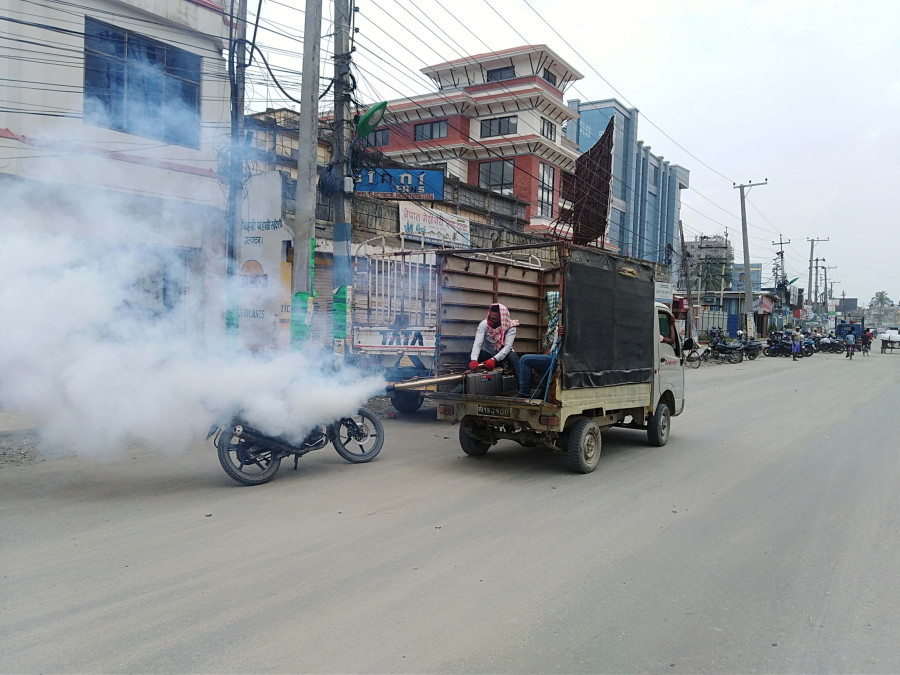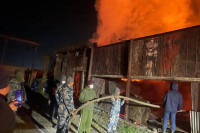Bagmati Province
Dengue fear: Chitwan on high alert
Health Directorate launches mosquito search and destroy campaign, mobilising 90 health volunteers, including representatives of local development organisations, in the district.
Pramita Dhakal
The Health Directorate of Province 3 has launched a search and destroy campaign in Chitwan to get rid of mosquitoes, their eggs, larvae and pupae in a bid to control dengue.
According to the directorate, the drive has been started in various parts of Chitwan keeping in view of possible threat. This year, health workers have confirmed dengue epidemic in Dharan before the start of monsoon.
Chandreshwor Yadav, officer at the directorate, said they have been getting requests from the public to spray insecticides to kill mosquitoes in the settlements.
“However, we are also going to destroy mosquito eggs, larvae and pupae,” said Yadav, adding that they are also going to organise awareness campaigns simultaneously to advise people to not collect and store water for later use.
In the past, dengue patients had been found in the bazaar areas of Bharatpur Metropolitan City, Ratnanagar Municipality and Rapti Municipality.
Ram KC, a kit controller at the District Health Office, said that Chitwan is at a high risk of a dengue epidemic this year.
“We have mobilized 90 women health volunteers in the settlements to search and destroy mosquito eggs, larvae and pupae. The volunteers will also include representatives of local development organisations” said KC, adding that they have told volunteers to identify the breeding grounds of mosquitoes. “The disease is mostly spread by the stagnant water in tyres, drums and broken glass bottles,” he said, adding that they have also planned to involve the city police in the fight against dengue this year.
In the last fiscal year, 11 people were infected with dengue in the district, while 59 diagnosed with dengue infection in the fiscal year 2017-18. In the fiscal year 2016-17, 610 people tested positive to dengue infection in Chitwan.
Aedes aegypti and Aedes albopictus mosquito, which transmit dengue virus, breed in clean water and are active during the day. The same mosquitoes also transmit chikungunya, yellow fever and Zika virus, according to the World Health Organization.
According to the doctors, mild to high fever, severe muscle pain, rashes in the muscles, severe headache, pain in eyes are some of the symptoms of the infection of the disease. The UN health agency said that there is no specific treatment for severe dengue, but early detection and access to proper medical care lowers fatality rate.




 12.12°C Kathmandu
12.12°C Kathmandu













